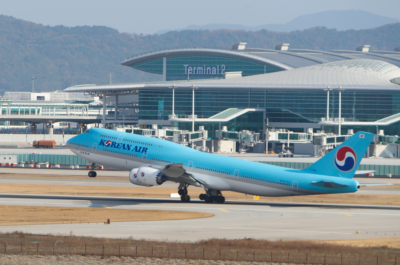Travel, as a luxury expenditure, is often one of the first things we choose to limit when a crisis hits.
The rapid spread of the coronavirus from China and beyond has caused a rapid and sudden halt to tourism throughout Asia. Travel, as a luxury expenditure, is often one of the first things we choose to limit when a crisis hits. In times like this, the revenue leader’s response during this time could be crucial on a few different levels. The following are some simple tips and reflections.
1. Use data to tell a story to manage panic and fearful expectations
Whilst optimizing revenue isn’t a top priority during a time of rapid cancellations and widespread declines in tourism arrivals, most revenue leaders are in the position to monitor data. By the simple routine of running daily pick-up reports, monitoring booking pace and reviewing the forecast, the discipline of these reports equips us with information to understand the severity of what is happening. At times like this, it’s more important to provide context to the data. For example, noting that there are 50 cancellations a day is not as important as being able to say ‘We are observing an average of 50 cancellations a day, this is 120% more than the typical daily cancellation factor we observed. Key source countries the cancellations are coming are from XYZ.’ Accurately providing context to these figures is important to provide a succinct perspective, no matter how dire.
2. Research historical macro trends of a similar crisis
Unfortunately for the world, the coronavirus outbreak is not the first virus epidemic in recent history. SARs, H1N1 and MERs still brings back chills for countries that experienced these epidemics acutely. If you are in a country that has experienced any of these before, review the historical decline in tourism arrivals in comparison to the same time in the previous month or previous year.
As an example, during the SARS outbreak, Singapore experienced a decline of 19% year-on-year in tourist arrivals. However, they are forecasting a decline of up to 30% in tourism arrivals due to the coronavirus. These macro-tourist trends are an indicator of the expected decline you might expect for your own hotel business. It’s also important to account for variations due to impacts on different market segments – larger conventions may be cancelled or shifted completely, whilst smaller meetings or independent travelers may not see as large a shift depending on their purpose of travel.
Understanding the macro-perspective may be cold comfort in the face of loss revenue, but it provides a realistic picture of performance and could be useful in dealing with anxious comments from far-away head offices.
3. Focus on cashflow, find different sources of revenue if possible
Rather than spending time clawing back cancellation fees or lamenting the loss of a great potential piece of business, it’s important to divert your sales or distribution efforts to other sources of revenue.
For groups or guests who wish to cancel, allowing a postponed trip will be helpful.
Think about the psychology of people responding in this type of crisis now. Most people are fearful of attending a large event of 100 people for fear of that 1 stranger who was unaware and has the virus. But some people are probably more comfortable meeting in smaller settings where they know there are people they can trust to be responsible.
However, in a crisis, cashflow is king. Unfortunately, it’s also time to reduce unnecessary spending to ensure the hotel is in a decent cashflow position to weather the next few months.
4. A crisis is still a moment-of-truth
In the hospitality business, we are often in the business of holidays, celebrations and great service. The crisis is the antithesis to any form of celebration, but we all need to remember that these are also ‘moments-of-truths’ that we need to manage. If we respond to a cancellation request with patience, compassion and anticipation that they will return, your guest is likely to return when they can arrange their next trip.
If we respond in a petty way to reject refunds or charge cancellation fees, you might get the money but you would have lost the customer forever and left a bitter taste in their mouth. Whilst saying that, I recognize that all businesses need to balance compassion and cashflow management.
I often think to myself ‘How would I respond if the person on the line is my family calling to cancel the booking?’ With that in mind, it should define the spirit of compassion we will be able to empower our front-line staff to deal with the cancellations coming in.
As much as we would like to minimize revenue loss, if there is any time we should reconsider the SOPs and break the rules, is a time of crisis.
Visit Business Traveller for a collection of responses from hotel businesses worldwide responding to the coronavirus.
5. A time to ‘separate the men from the boys’
A somewhat less politically correct phrase coming from a female writer, but I do sincerely believe that a crisis defines a leader and separates the men from the boys. Our truest colours show under intense pressure. As a revenue leader, this is the time to show the rest of the hotel team that we are more than statistics, increased prices and overbooking levels. It’s a time to use data to paint realistic expectations, whilst strategizing for the turnaround when it comes.
It’s a time to use facts to calm panic. Or look at the data and panic first, before sharing everything in a much more composed and methodical manner.
It’s a time to show compassion and focus on supporting fellow colleagues in the best way possible.
It’s a time to learn and record down the trends and stories under these extreme circumstances because when the turnaround comes, you’ll want to be able to look back and reflect on how this process made your teams stronger and more resilient.
Finally, it’s important to remain prepared for the comeback. Fortunately for us, historical statistics also show that there is always a turning point. Although it may feel far away now in the midst of the fallout, as the team looking at booking pace and daily-pick up reports, you’ll also be the first one to be able to report the good news. Be prepared for that.
HSMAI advisory board secretary, HSMAI Singapore Chapter Vice President, HSMAI revenue advisory board and the Blue Mountains Hotel School Alumni Board.























































